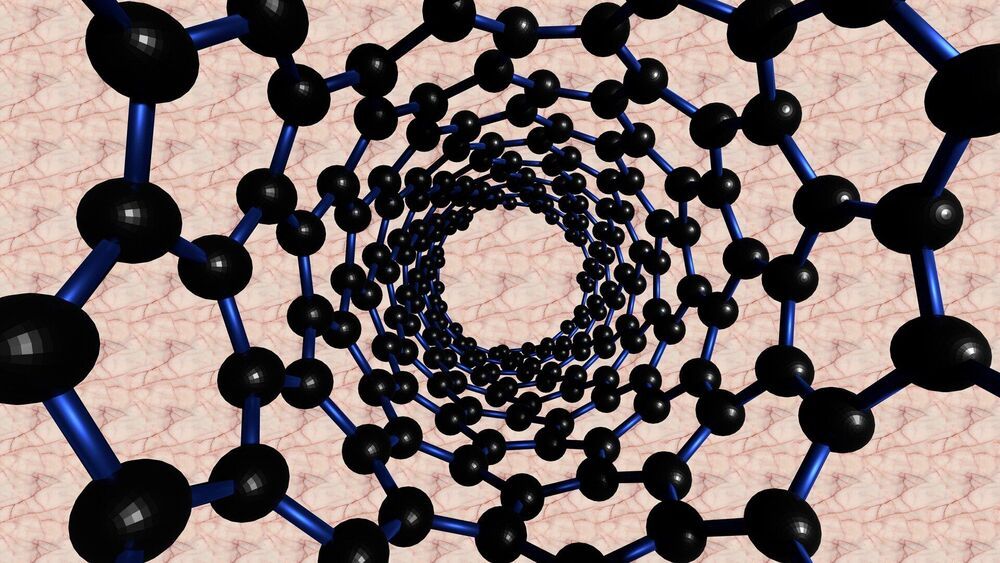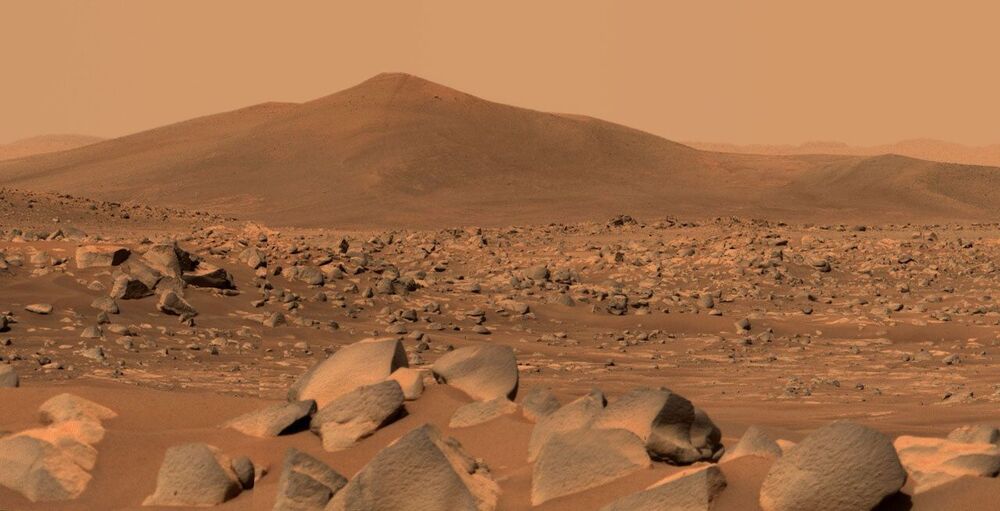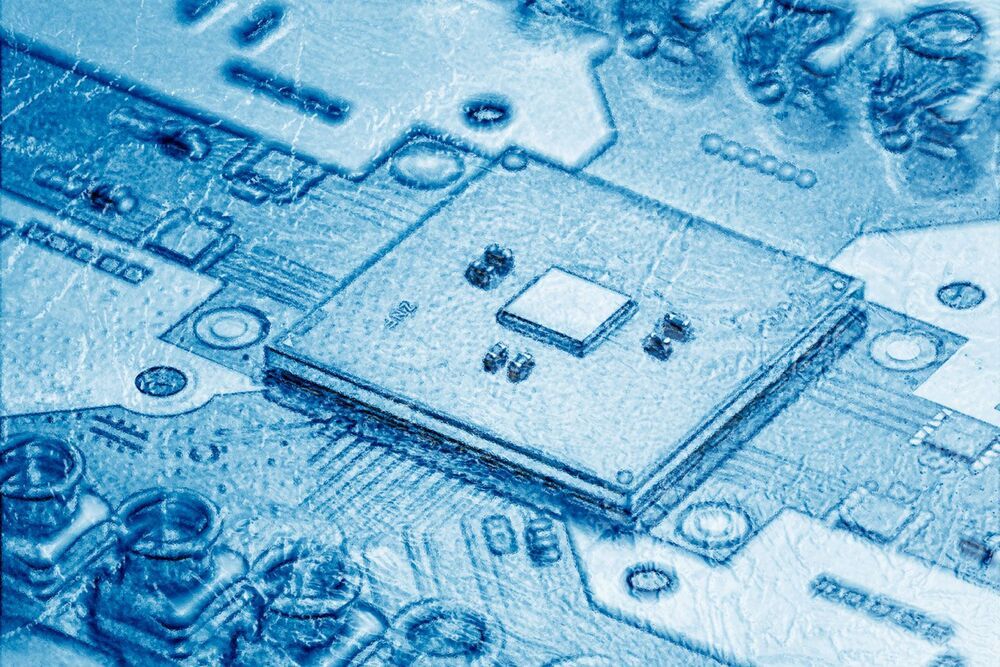Researchers at Intel Labs have modded Grand Theft Auto V using a neural network and a dataset of photos of German cities. The results look unsettlingly photorealistic.
Get the latest international news and world events from around the world.
Longevity Meets Blockchain — AMA with Aubrey de Grey and Vitalik Buterin
Join Aubrey de Grey and Vitalik Buterin on our fireside chat where they discuss and answer questions at the intersection of longevity and web3.
The AMA is hosted by VitaDAO — VitaDAO is the world’s first decentralized intellectual property collective.
Its mission is to extend the human lifespan by collectively financing and commercializing longevity therapeutics in an open and democratic manner.
VitaDAO and its members will own the intellectual property assets that result from the projects it supports. Members can contribute work or funds to join VitaDAO by purchasing or earning VITA tokens.
Wow! MIT’s color-changing paint could make your iPhone look different every day
This amazing research out of MIT could have big implications for gadgets and fashion.


New atomically precise graphene nanoribbon heterojunction sensor developed
An international research team led by the University of Cologne has succeeded for the first time in connecting several atomically precise nanoribbons made of graphene, a modification of carbon, to form complex structures. The scientists have synthesized and spectroscopically characterized nanoribbon heterojunctions. They then were able to integrate the heterojunctions into an electronic component. In this way, they have created a novel sensor that is highly sensitive to atoms and molecules. The results of their research have been published under the title Tunneling current modulation in atomically precise graphene nanoribbon heterojunctions’ in Nature Communications. The work was carried out in close cooperation between the Institute for Experimental Physics with the Department of Chemistry at the University of Cologne, as well as with research groups from Montreal, Novosibirsk, Hiroshima, and Berkeley. It was funded by the German Research Foundation (DFG) and the European Research Council (ERC).
The heterojunctions of graphene nanoribbons are just one nanometer—one millionth of a millimeter—wide. Graphene consists of only a single layer of carbon atoms and is considered the thinnest material in the world. In 2010, researchers in Manchester succeeded in making single-atom layers of graphene for the first time, for which they won the Nobel Prize. The graphene nanoribbon heterojunctions used to make the sensor are each seven and fourteen carbon atoms wide and about 50 nanometres long. What makes them special is that their edges are free of defects. This is why they are called atomically precise nanoribbons, explained Dr. Boris Senkovskiy from the Institute for Experimental Physics. The researchers connected several of these nanoribbon heterojunctions at their short ends, thus creating more complex heterostructures that act as tunneling barriers.
The heterostructures were investigated using angle-resolved photoemission, optical spectroscopy, and scanning tunneling microscopy. In the next step, the generated heterostructures were integrated into an electronic device. The electric current flowing through the nanoribbon heterostructure is governed by the quantum mechanical tunneling effect. This means that under certain conditions, electrons can overcome existing energy barriers in atoms by ‘tunneling,’ so that a current then flows even though the barrier is greater than the available energy of the electron.

China starts large-scale testing of its internet of the future
It will serve as a backbone network for the China Environment for Network Innovations (CENI), a national research facility connecting the largest cities in China, to verify its performance and the security of future network communications technology before commercial use.
Experimental network connects 40 leading universities to prepare for an AI-driven society five to 10 years down the track.

Perseverance’s Robotic Arm Starts Conducting Science Program
NASA’s newest Mars rover is beginning to study the floor of an ancient crater that once held a lake.
NASA’s Perseverance rover has been busy serving as a communications base station for the Ingenuity Mars Helicopter and documenting the rotorcraft’s historic flights. But the rover has also been busy focusing its science instruments on rocks that lay on the floor of Jezero Crater.
What insights they turn up will help scientists create a timeline of when an ancient lake formed there, when it dried, and when sediment began piling up in the delta that formed in the crater long ago. Understanding this timeline should help date rock samples – to be collected later in the mission – that might preserve a record of ancient microbes.


Hyaluronic acid: A key molecule in skin aging
Skin aging is a multifactorial process consisting of two distinct and independent mechanisms: intrinsic and extrinsic aging. Youthful skin retains its turgor, resilience and pliability, among others, due to its high content of water. Daily external injury, in addition to the normal process of aging, causes loss of moisture. The key molecule involved in skin moisture is hyaluronic acid (HA) that has unique capacity in retaining water. There are multiple sites for the control of HA synthesis, deposition, cell and protein association and degradation, reflecting the complexity of HA metabolism. The enzymes that synthesize or catabolize HA and HA receptors responsible for many of the functions of HA are all multigene families with distinct patterns of tissue expression. Understanding the metabolism of HA in the different layers of the skin and the interactions of HA with other skin components will facilitate the ability to modulate skin moisture in a rational manner.
Keywords: hyaluronic acid, hyaluronic acid synthases, hyaluronidases, CD44, RHAMM, skin aging.
Human skin aging is a complex biological process, not yet fully understood. It is the result of two biologically independent processes. The first is intrinsic or innate aging, an unpreventable process, which affects the skin in the same pattern as it affects all internal organs. The second is extrinsic aging, which is the result of exposure to external factors, mainly ultraviolet (UV) irradiation, that is also referred to as photoaging.1 Intrinsic skin aging is influenced by hormonal changes that occur with age,2 such as the gradual decreased production of sex hormones from the mid-twenties and the diminution of estrogens and progesterone associated with menopause. It is well established that the deficiency in estrogens and androgens results in collagen degradation, dryness, loss of elasticity, epidermal atrophy and wrinkling of the skin.3